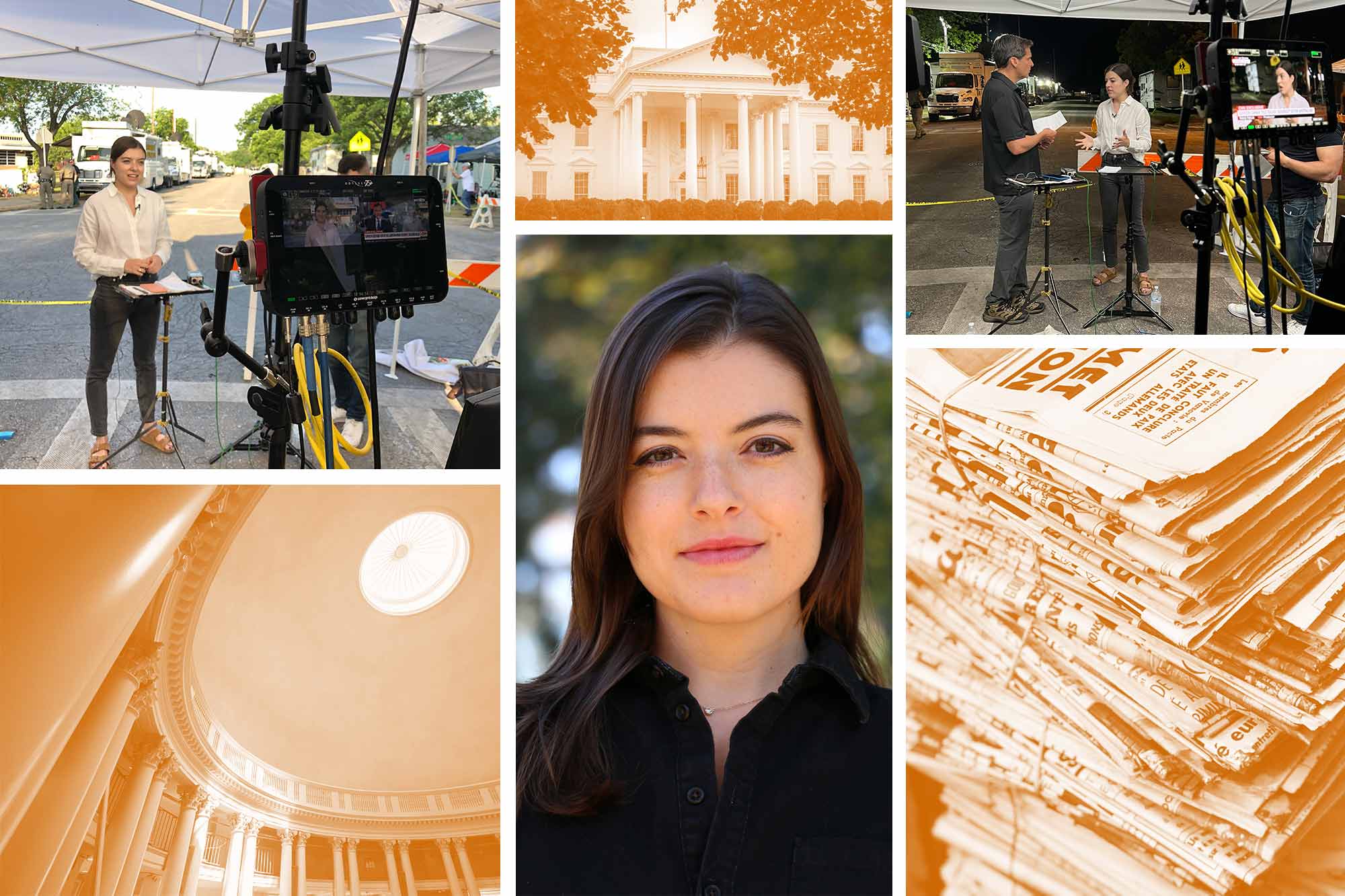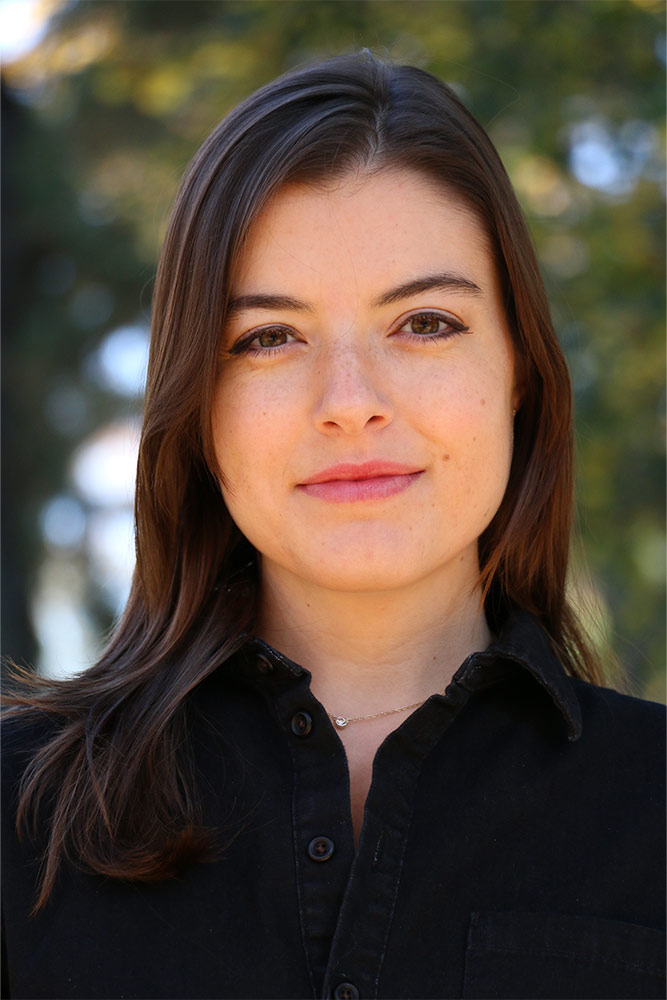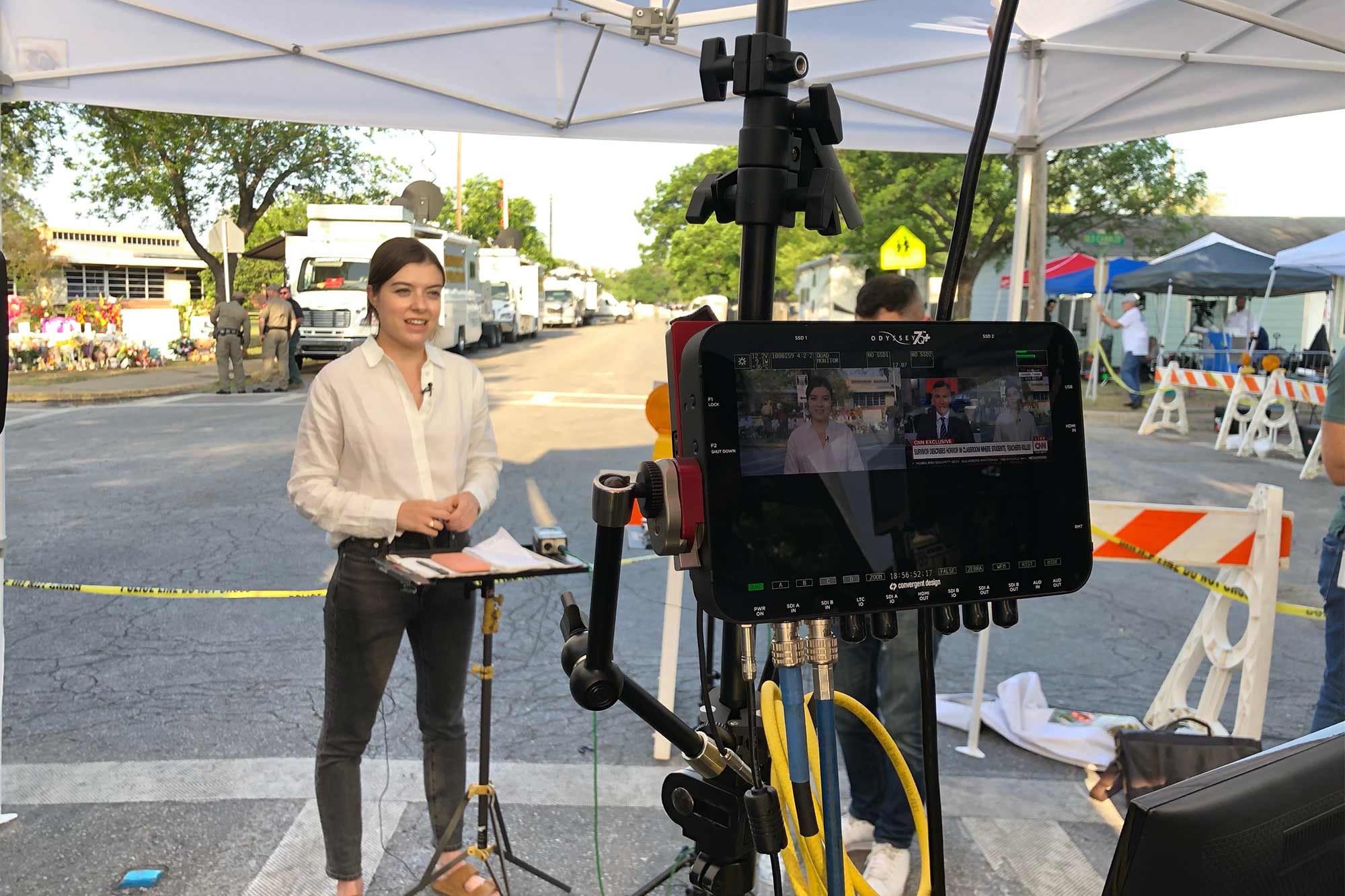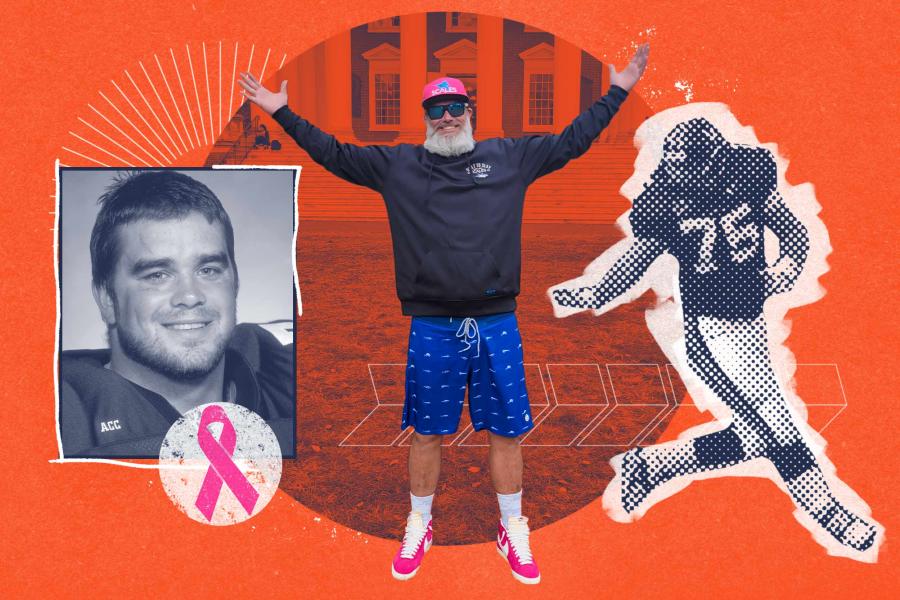A little more than a year and a half later, with her degrees secured and some experience in hand, she went back to CNN. After an overnight shift in late May, her boss called her at her apartment. She and anchor John Berman were heading to Uvalde.
The Interview That Almost Wasn’t
Not long after arriving in the Texas town, the CNN crew had located parents who were willing to let their child talk to a television crew. But as Neus was finalizing the arrangements for Berman, plans changed.
The child was so scared of the gunman that she didn’t want to talk to any man. Her family told Neus, “Miah wants to tell her story, but she wants to speak to a lady reporter.” Neus met with Miah and her family, took notes, and later hustled back to where CNN’s crew was broadcasting live. Neus recounted Miah’s heartbreaking story on air.
It was a hard story to tell, but one Neus says she needed to tell.
“If families want to, we have a shared goal of explaining exactly what was happening in these shootings, so something can be done,” Neus said. “And then something can change. By telling what it was like to live through a school shooting, maybe other kids wouldn’t have to live through a school shooting.”
Neus’ account reverberated. On June 2, President Biden used a rare prime-time address to address gun violence.
“Imagine being that little girl,” Biden said from the White House, “that brave little girl in Uvalde, who smeared blood off her murdered friend’s body on her own face to lie still among the corpses in her classroom to pretend she was dead, in order to stay alive.”
And then on June 8, Miah herself addressed members of the House of Representatives in a recorded statement.
“He shot my friend that was next to me and I thought he was going to come back to the room,” she said. “So I grabbed the blood and put it all over me.”
Now, weeks later, Neus is back in her Brooklyn apartment. She’s back on the overnight shift preparing Berman for the daybreak show, “New Day,” that he co-anchors with Brianna Keilar.
In the afternoons, Neus spends a few hours writing. She recently finished a book telling another child’s story. She co-wrote “Muhammad Najem, War Reporter,” with a Syrian teenager who risked his life using his cell phone to document the war in his country. The book will be released in September.
Her book about Muhammad and her interview with Miah both share something important to Neus.
“Someone has trusted me to tell their story,” she said. “That is my responsibility. So I am going to carry it with me.”
When that book comes out later this year, it will feature this review:
“What an amazing story this is! One family’s struggle for survival in the chaos of Syria, and one boy’s courageous decision to risk his life to tell the story. This graphic memoir is inspiring and exciting, powerful and very poignant. I loved it!”
It was written by Anderson Cooper, the CNN anchor she first talked to in 2015 when the flying contraption flopped down in front of her and changed her life.







